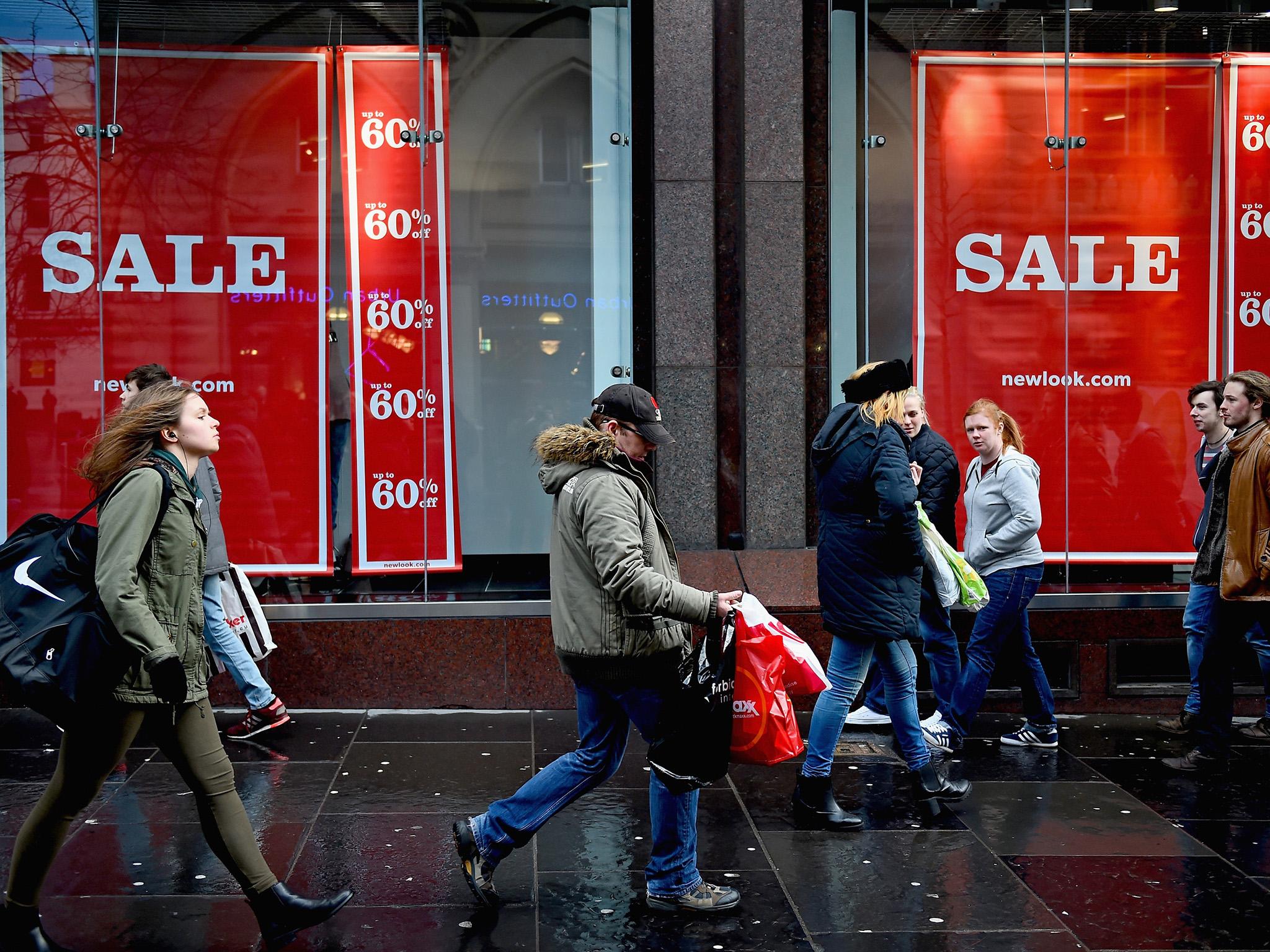Retailers face gloomy year of cost-cutting, further store closures and more job losses
A series of woes came to a head at the end of last year, forcing firms to start 2018 with cost-cutting at the top of the agenda - things don't look set to improve, say experts

Your support helps us to tell the story
From reproductive rights to climate change to Big Tech, The Independent is on the ground when the story is developing. Whether it's investigating the financials of Elon Musk's pro-Trump PAC or producing our latest documentary, 'The A Word', which shines a light on the American women fighting for reproductive rights, we know how important it is to parse out the facts from the messaging.
At such a critical moment in US history, we need reporters on the ground. Your donation allows us to keep sending journalists to speak to both sides of the story.
The Independent is trusted by Americans across the entire political spectrum. And unlike many other quality news outlets, we choose not to lock Americans out of our reporting and analysis with paywalls. We believe quality journalism should be available to everyone, paid for by those who can afford it.
Your support makes all the difference.Some of Britain’s best-known retailers are facing a tough year of deeper cost-cutting, more store closures and further job losses, several new reports suggest.
The high street is faced with deep-seated problems which show little sign of abating, the research shows.
Fashion retailers are particularly vulnerable, with almost one in five exhibiting early warning signs of becoming insolvent, according to professional services firm Moore Stephens.
Out of 35,078 fashion retailers it analysed, 6,580 were showing early signs of financial distress, which can include a large fall in revenue and poor payment history.
Separate research by the British Retail Consortium found that the number of people visiting shops slumped across all regions of the UK in January. Meanwhile, costs look set to rise further at the same time as competition from online and discount rivals intensifies.
Many of the high street’s woes all came to a head at the end of last year, says Richard Lim, chief executive of Retail Economics, a consultancy firm that specialises in the sector. That forced firms to start 2018 with cost-cutting at the top of the agenda, he says.
Thousands of workers have been laid off by big chains since the turn of the year, with Debenhams becoming the latest high-street name to announce job cuts on Thursday.
The 240-year-old department store joined Marks & Spencer, Tesco, Sainsbury’s, Asda, Morrisons and B&Q which have all set out plans to shed staff.
Others look set to follow. Warren Evans fell into administration this month, New Look and Mothercare both made dire recent announcements to the stock market and House of Fraser has entered negotiations to cut its store rents.
The number of job cuts in retail was already accelerating in the third quarter of last year, according to the BRC, a trend that has continued since.
“Retailers have been hit by spiralling costs, with increases to the national living wage, hikes to business rates, and higher inflation,” says Lim.
Retailers will give 40 per cent of workers in the sector a pay rise this year thanks to increases in the minimum wage, but many shoppers are seeing their salaries grow more slowly than inflation.
This has meant intense pressure on margins for retailers who have been reluctant to raise prices for fear of losing customers.
Margins fell last year at their fastest rate since the financial crisis, according to new research from Retail Economics and NatWest.
Some high-street names will be more resilient to the tough conditions than others, says Lim. Stores that offer a genuine specialism and can offer customers an experience and expertise that they can’t get online will compete. Lim cites outdoor clothing chain Mountain Warehouse and shoe retailer Footasylum as being good examples of this. Both reported bumper Christmas sales while more generalist retailers floundered.
Beyond the specialists, the outlook does not look set to improve for many this year.
Retailers with “legacy business models” like Debenhams simply have too many shops to compete with the likes of Amazon says Lim. That means more branches could face closure.
In the face of falling real wages, consumers had been increasingly taking out debt to fund purchases but the period of ultra-low interest rates since the financial crisis looks set to begin coming to an end. Bank of England Deputy Governor, Ben Broadbent said last week that doubling of the benchmark rate to 1 per cent this year would not be "a great shock".
"The high street has felt the brunt of the slow wage growth as shoppers have reigned in their discretionary spend on non-essentials," says Mike Watkins, head of retailer insight at Nielsen.
"This pressure on spend is likely to continue for retailers across the board," he says.
Join our commenting forum
Join thought-provoking conversations, follow other Independent readers and see their replies
Comments